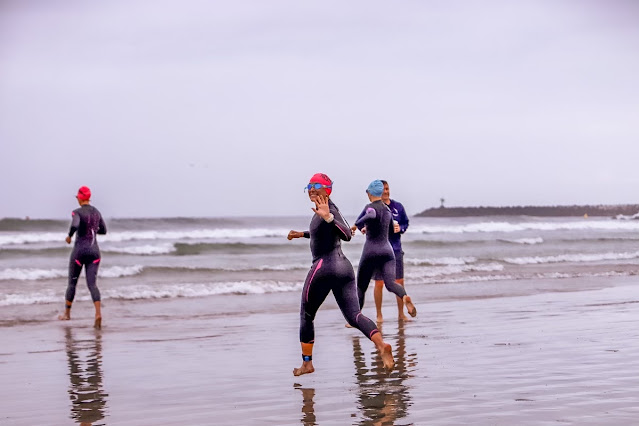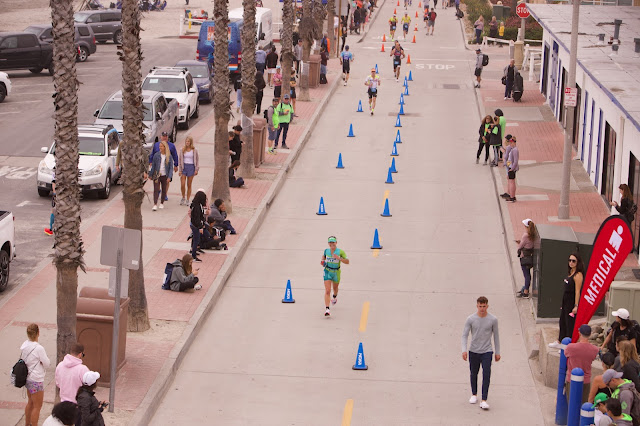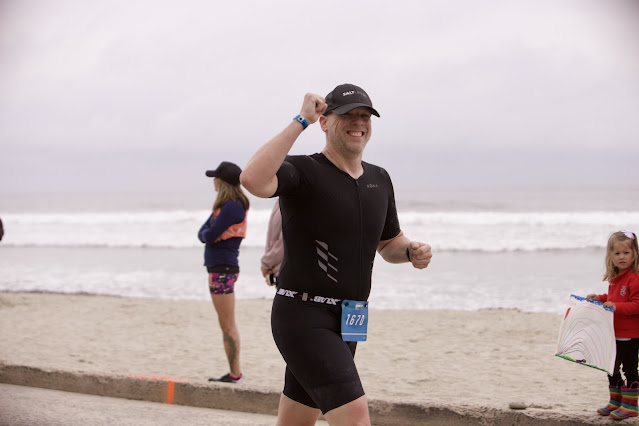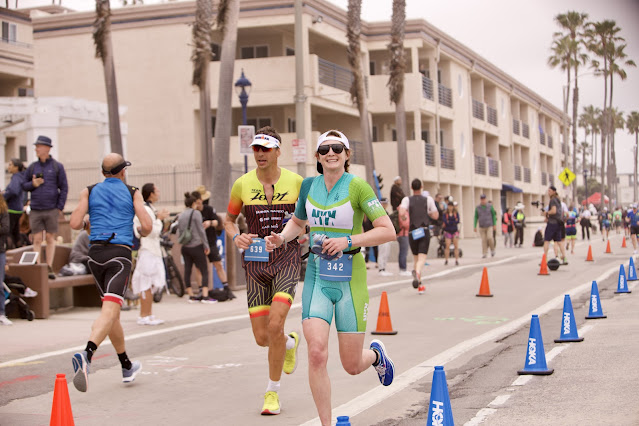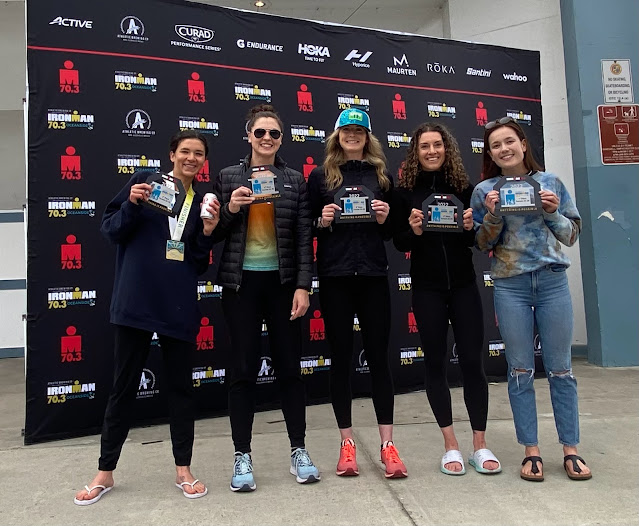(Originally published at nyxendurance.com.)
On Thursday, March 17th, Lia Thomas became the first transgender athlete to win an NCAA swimming championship, taking the title in the 500yd. freestyle. In so doing, her accomplishment sparked an outpouring of debate around the issue of equity in female sports: whether there are defining lines in an increasingly gender-expressive world and if so, who gets to define them. Is there a safe and fair way to distinguish what constitutes gender with regard to athletic competition? Does the basic human right to claim your own true identity have to be at odds with the necessity of female sports to be considered on their own terms?
THE SCIENCE:
While it is widely understood that supplementing with exogenous testosterone will lead to an asterisk next to your list of accomplishments, the research concerning endogenous testosterone (which the body makes naturally) is less definitive. Given the variability of testosterone production and availability between and amongst male and female bodies, there is no conclusive causal relationship between testosterone levels and athletic performance.
However, according to this comprehensive article from The New Yorker titled, “The Trans Swimmer Who Won Too Much,” author Louisa Thomas highlights what we know to be true about the differences between elite male and female athletes: “People who have gone through testosterone-driven puberty have, on average, more cardiovascular capacity, greater muscle mass, higher tendon mechanical strength, and denser bones. They tend to be stronger and taller, with longer wingspans. In many sports involving timed races, men are roughly 10 – 12% faster than women.”
In an examination of Lia Thomas’s swim times before and after testosterone suppression, researchers determined that there was only about a 5% difference in her performances, which has led to the ensuing debate over the correct place for Thomas and the wider trans community in sports. Within the world of women’s sports, athletes and organizations such as the IOC and NCAA are grappling with how to create a safe and equitable environment for competition, while prioritizing inclusion and prevention of harm. Outside of the world of women’s sports, politicians and other men are contemplating equally important dilemmas such as how would we continue to distinguish women as lesser versions of men if a woman could accomplish roughly the same feat as a man? And, who would protect women if they continued to creep dangerously close to the strength and ability of men? Frankly, it made no sense.
PROTECTING WOMEN’S SPORTS:
Speaking of the heroic efforts of those on the front lines of women-saving, to whom do we owe our debt of gratitude?
Unfortunately, we are unable to specifically thank the parents of a group of Penn swimmers who sent a letter to the NCAA, opposing Thomas’s right to compete in women’s competitions. They sent the letter anonymously, which as everyone knows is the most brave and morally accountable way to inspire change. I only wish my own parents had had the foresight to send a letter to my college coaches, inquiring about my playing time or expressing concern for my safety as I matched up against women who were bigger and stronger than I was.
The Florida Governor, Ron DeSantis, did however feel inclined to take up the spotlight, declaring Emma Weyant (the woman who came in 2nd to Thomas) the rightful winner of the NCAA women’s 500yd freestyle. DeSantis’s authority to make this proclamation is due, of course, to Weyant being a native Floridian.
This is akin to the 2020 election when Trump claimed to have won the votes in several states right before they were officially called for Biden. Then John Legend invited his twitter followers to also claim things they don’t have any right to, ensuring that they followed specific instructions to include the word “hereby” in order to make it legally binding. People claimed such things as a private island in the Maldives, all of the Teslas, the moon, and marriage rights to both Beyonce and Chrissy Teigan, turning what started off as some light-hearted Trump-jesting into a disturbingly accurate representation of colonialism.
Adding to the list of politicians weighing in on the issue, Wisconsin Senator Ron Johnson stated his disapproval of transgender women competing in women’s sports, while adding a helpful and inspiring comment about trans women being allowed in women’s bathrooms, saying, “it’s creepy.” Someone please get this guy a medal of honor.
“Save Women’s Sports” is an organization that opposes transgender athletes competing in women’s competitions. They sum up their contribution in their own blog, which reads, “On Thursday, March 17th, Save Women’s Sports held a press conference in front of the McAuley Aquatic Center at Georgia Tech at the site of the 2022 NCAA Women’s College Swimming Championships to raise awareness of males unfairly competing as females.” While I would be more inclined to entertain an opinion on women’s sports coming from actual women, the fact that this position is centered on disallowing male participants and Lia Thomas is not a male participant, there’s really nothing to talk about here. Everyone is in agreement which thereby renders this organization completely and utterly pointless.
The efforts of these so-called women protectors have largely manifested as an onslaught of hateful rhetoric, which at one point led the Penn coaches to ask their swimmers not to wear their school gear to a meet in order to not be recognized as targets. So at what point must we ask ourselves if we are truly invested in protecting women, or if we are really just committed to perpetuating the cultural construct of women, at the expense of actual people?
Erica Sullivan, who won the silver medal in the 1500m freestyle this past summer in the Tokyo Olympics points out, “As a woman in sports, I can tell you that I know what the real threats to women’s sports are: sexual abuse and harassment, unequal pay and resources, and a lack of women in leadership.”
INSIDE WOMEN’S SPORTS:
As a cisgender woman who has spent the vast majority of my life participating in a variety of sports at an elite level, I can only speak from my own perspective. On countless teams of women, through the highs and lows, wins and losses, ecstasies and disappointments, this underlying thread has remained constant: our inherent greatness is amplified only to the extent that we are willing to prioritize inclusion and collaboration.
In every team locker room that I’ve been a part of, women have felt more free to challenge outdated gender norms than in most other places in our lives. In pursuit of a common goal, bodies and identities which challenge the limited structure of the idealized feminine are the exact mechanisms through which women come to understand the vastness of our power.
In 2014, Jason Collins, the Brooklyn Nets center, became the first openly gay male athlete to play a game in any of the United States’ 4 major professional sports leagues. It wasn’t until 2021 that the first openly gay male football player, Carl Nassib, played in an NFL game. For anyone counting, that was 1 year ago. Meanwhile, openly gay women have been participating in sports for as long as women have been deemed capable enough to participate in sports, what with our frail bodies and reproductive defects.
Before 1967 when Katherine Switzer disguised her gender in order to enter, compete in, and successively become the first woman to run an official marathon, women were thought of as too weak to be able to run 26 miles. Who knew what could happen to us out there at a time when medical research had only been conducted on and designed for male bodies. Would our uteruses fall out? What if we got our periods and bled all over the race course?
In another depressingly late advancement in gender equality, just last year the IOC added the 1500m freestyle to the Olympic games, an event which was previously only available to men, with Katy Ledecky winning the inaugural crown. Interestingly, Ledecky’s time in the event was less than 10% slower of the winner of the men’s race and therefore begs the inevitable question: is Katy Ledecky a man?
WHAT TO DO:
So what do we do with this poor, sad, less biologically capable half of all humans? Well for starters, we could categorize them, put them in their own container that says “you are only allowed to be up to 90% as good as the other half.” Then, if perchance one of the members inches closer to something like 95%, they will have to be recategorized as something like “lesser male” in order to keep the fragile humans safe and appropriately contained for the purposes of maintaining the power discrepancy.
Then when that plan inevitably fails, we can turn to the way that we’ve always proceeded through history: forward. And here’s the best part: we don’t have to have the answers in order to move forward. In fact, moving forward without the answers is the only way to elicit progress because it puts us into a conversation with reality as it is, rather than what we wish it was. And history, consequently, is happening all around us. It is found in the continuously unfolding exchange between the present ground beneath our feet and the distant horizon towards which we are walking.
A WIDER APERTURE:
Clinging to the belief that trans women are taking away opportunities from cis women is an agreement to a world in which we are victims to the scarcity upon which capitalsm sustains itself. When we say, “she took what is rightfully mine,” we are saying, “my own validation is dependent upon the failure of others.” And what’s worse, the ensuing path is an imprisonment of our own making, to a world of preconstructed hierarchies. Unless we can be faithful enough to allow the path to unfold without answers, we will continue to be victims of one of the most basic human delusions – believing that we have any control over the outcome.
If I am going to contribute to the unfolding of history, I will have wanted to be sure that I helped open doors instead of close them – that I said “yes” and “what if” far more often than I said “no” or “impossible.”
What I know from a lifetime of being a woman in sports is that whenever a new woman comes into our woman-club who can show us what more looks like, often my first response can be impulsive, enveloped in fear, and I may question whether my own qualities measure up. But underneath the fear, as I borrow her lens to sort through the layers of the roles that have been imposed upon me, I find new courage to let go of the ones that are too narrow for the light to come through. In other words, thank God this new woman is here to show us all how to become just a little bit more free.
TO THE MEN:
If you’re a man who loves a woman, whether she be your wife, or your daughter, or someone else who you would literally do anything for, I understand your desire to protect her from the potential evils of the world. I know that this comes from a good place. But please consider an even greater compliment to her spirit and to her capacity to be successful in this world. By showing her that she does not need your protection, you are affirming her implicit, boundless self efficacy.
If you’re a man who believes that your opinion is welcomed and appreciated in any room you enter and/or find yourself hereby declaring ownership of things you actually have no rights to, I genuinely hope you continue to explore your newfound interest in women’s sports. But if in fact you can’t be bothered to tune in to a WNBA game or be inspired by dominance of the US National Women’s Soccer Team then please, for the love of God, fuck off.


